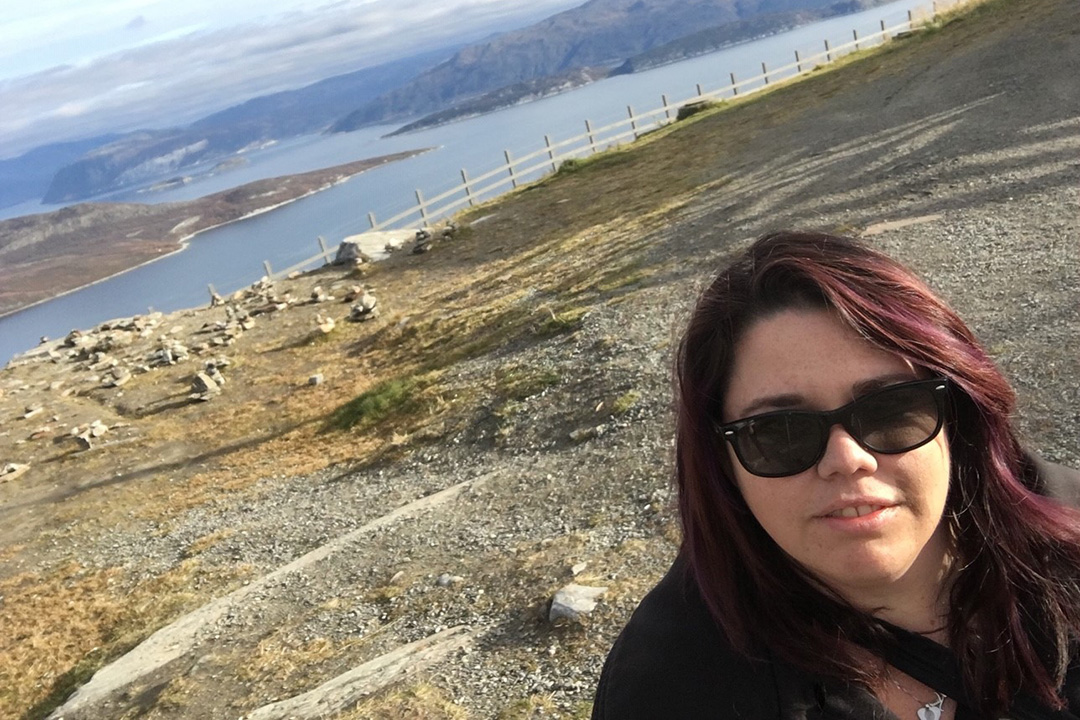
GENI program a wish come true for Landrie-Parker
Dazawray Landrie-Parker joined the Johnson Shoyama Graduate School of Public Policy (JSGS) two years ago, hoping to develop a better understanding of policy issues in northern and Indigenous areas.
By Kimberlee LitzenbergerNow, as the first graduate of the Joint Master of Governance and Entrepreneurship in Northern and Indigenous Areas (GENI) program, Landrie-Parker will join over 900 JSGS alumni worldwide when she takes part in University of Saskatchewan Fall Convocation on Saturday, October 27.
“The GENI program was such a whirlwind and life-changing experience,” said Landrie-Parker. “I learned a tremendous amount, not only from the coursework but also from my fellow students.”
Landrie-Parker’s Métis ancestry fueled her focus on Indigenous communities and inspired her undergraduate degree in Native Studies from the U of S. After learning about the GENI program, offered jointly by UiT The Arctic University of Norway and the JSGS, she knew it would be a great opportunity to study in an area that benefits northern and Indigenous communities.
For Landrie-Parker, the program’s innovative structure offered the tangible benefits of working within the communities and seeing positive changes take place. She appreciated the field school components in northern Norway and Saskatchewan, with each location posing differing but equally valuable lessons on northern governance and entrepreneurship.
“GENI students are able to immediately take what they’ve learned from the field schools and apply it in their own communities,” said Landrie-Parker. “It encourages people to think differently about some issues, building the capacity for new solutions.”
Landrie-Parker said that spending time discussing and listening to her classmates’ unique perspectives enabled her to develop lasting relationships, both personally and professionally.
“The program’s structure offers a holistic learning environment where I had the opportunity to hear from many individuals, all with different backgrounds and life experiences, creating very diverse conversations.”
As the culmination of her program, Landrie-Parker researched and built a community engagement framework for nuclear energy engagement in northern communities. Nuclear energy is just one of the many potential solutions to addressing the alarmingly high cost of energy in northern communities.
“This research was key in generating conversations regarding the potential implementation of this new energy source for the North,” said Landrie-Parker.
Landrie-Parker is using the skills and knowledge she gained through the GENI program in her current position as a community engagement manager with the City of Saskatoon, a career she will continue after convocation.
“Having prior experience mostly in Indigenous communities, I thought the transition to focusing on larger municipalities would have been difficult. However, with the skills I gained through the GENI program and the community engagement framework I created as part of my project thesis, I was able to transform my learning and apply it within my day job,” she said.
With convocation on the horizon, Landrie-Parker is excited for what the future holds and is thankful for the incredible experience and support she received from the JSGS.
“The dynamic between students, faculty and staff is unheard of. You won’t get an experience like this anywhere other than the JSGS.”

